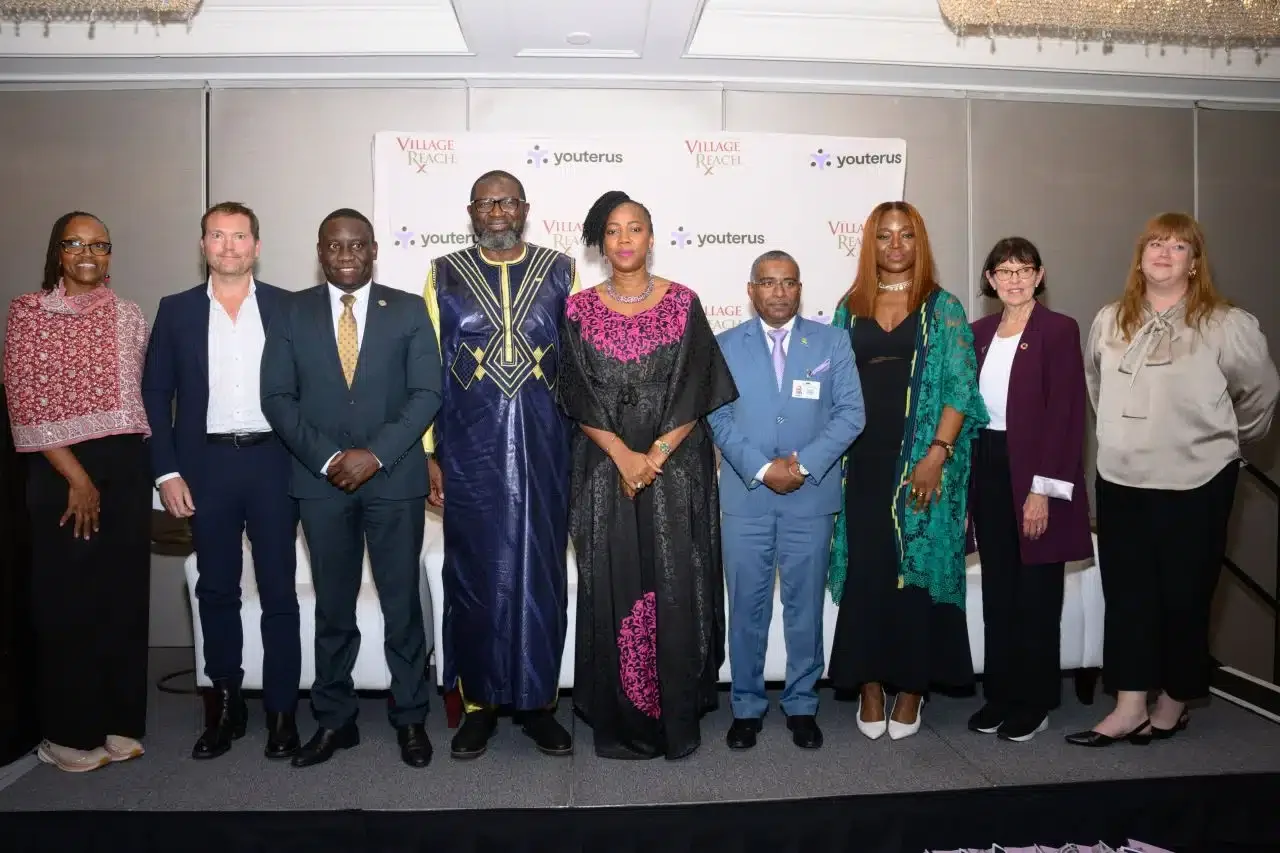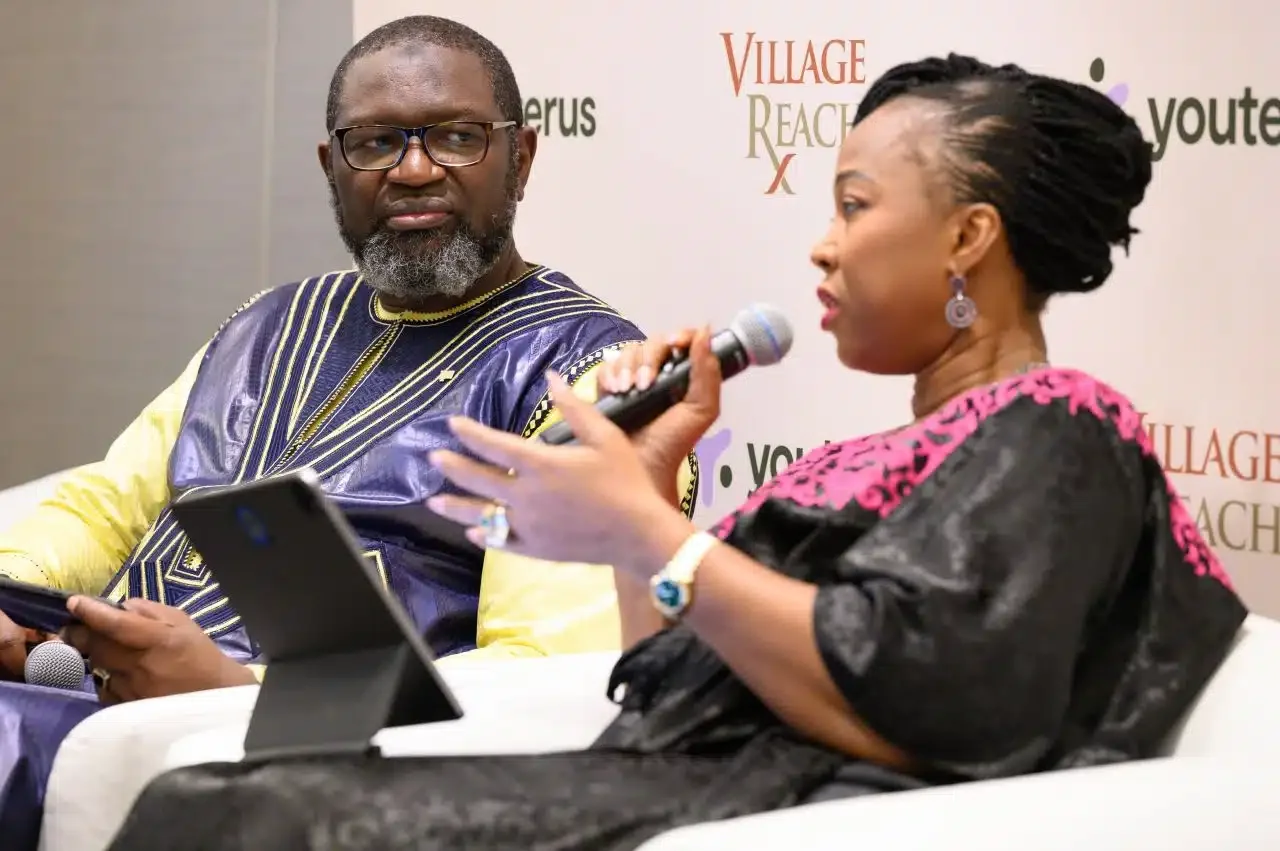Breaking the Silence: Making Uterine and Gynecological Health a Global Health Priority
During the 80th United Nations General Assembly (#UNGA80), VillageReach, in collaboration with Youterus Health, co-hosted a side event titled “Completing the Continuum: Prioritizing Uterine and Gynaecological Health to Close the Equity Gap.”
VillageReach and Youterus Health held a UNGA80 side-event, “Completing the Continuum: Prioritizing Uterine and Gynaecological Health to Close the Equity Gap.” (Photo Credit: Lorenzo Bevilaqua)
This timely conversation brought together ministers of health, global health leaders, funders and advocates, including Her Excellency Dr. Fatima Maada, First Lady of the Republic of Sierra Leone and President of the Organization of African First Ladies for Development (OAFLAD), who has championed the creation of the Uterine Health Fund. Together, we sought to confront one of the most persistent gaps in global health: the systemic exclusion of uterine and chronic gynecological health from the foundations of primary and community care. The discussions reinforced what many of us working in global health already know but too rarely see reflected in policy and financing.
From Silence to Systems
Women’s health has often been relegated to the margins of global health conversations. While maternal mortality has declined significantly in the past two decades, millions of women continue to suffer in silence from uterine conditions such as fibroids, endometriosis and heavy menstrual bleeding. These conditions compromise quality of life, productivity and in many cases survival.
With only five years remaining to deliver on the Sustainable Development Goals, we face a reckoning. While the world has made gains in maternal health, millions of women and girls remain without access to uterine and gynecological care. Up to 70–80% of women develop fibroids by age 50, with the highest burden among black women and heavy menstrual bleeding affects 18–30% of reproductive-age women worldwide. More so, for many women and girls untreated gynecological conditions are linked to anxiety, depression and social exclusion. Conditions such as fibroids, chronic bleeding, pelvic pain and endometriosis are among the most common causes of suffering and delayed care. They shape women’s health outcomes across their lives, directly affect maternal outcomes and compound inequities in education, productivity, mental health and social well-being.
Yet health systems, particularly in rural and under-reached communities, often lack structured pathways for diagnosis, affordable treatment or routine care. Their invisibility is systemic. It is a structural inequity that perpetuates poor outcomes and reduced agency for women and girls. Climate shocks, such as floods, heatwaves, displacement, exacerbate these vulnerabilities by disrupting already fragile access to care.
This moment demands clarity and courage. It is not enough to expand commitments; we must correct the course and ensure uterine health is treated as essential to primary health care and UHC. n idea. Maybe you want to launch a business. Maybe you want to turn a hobby into something more. Or maybe you have a creative project to share with the world. Whatever it is, the way you tell your story online can make all the difference.
Don’t worry about sounding professional. Sound like you. There are over 1.5 billion websites out there, but your story is what’s going to separate this one from the rest. If you read the words back and don’t hear your own voice in your head, that’s a good sign you still have more work to do.
Be clear, be confident and don’t overthink it. The beauty of your story is that it’s going to continue to evolve and your site can evolve with it. Your goal should be to make it feel right for right now. Later will take care of itself. It always does.
Leadership and Political Will
Dr. Ahmed Ogwell (left) and Dr. Fatima Maada Bio (right). (Photo Credit: Lorenzo Bevilaqua)
Her Excellency Dr. Fatima Maada challenged us to confront stigma head-on. Her call for uterine health to be recognized as a global issue, not dismissed as a niche or regional concern, was a rallying cry for leaders everywhere. Uterine health must be integrated into universal health coverage (UHC) frameworks with the same urgency given to infectious diseases and other high-profile conditions. Political will, she emphasized, must translate into policy, budgets and accountability.
The honorable Dr. Ussene Isse, Minister of Health of Mozambique, shared how a targeted gynecological surgery campaign reduced waiting times to under 60 days and provided over 660 surgeries in just three months. This was a powerful reminder that when women’s health is prioritized, results follow.
Evidence That Reflects Reality
One of the most striking themes was the lack of African-led research and data. Less than five percent of clinical trials occur on the African continent, mainly relying on male data on women’s health issues- leaving interventions poorly tailored to the populations most affected. Without context-specific evidence, it is impossible to design policies or allocate resources effectively.
The call to action is clear: invest in African researchers, generate evidence that reflects women’s lived realities and ensure that health information systems capture gynecological conditions alongside other health priorities.
Financing Beyond Moments
As participants reminded us, financing must go beyond one-off projects. Sustainable financing, embedded in domestic budgets and reinforced by strong regional platforms, is essential.
Philanthropy and global partners have a role to play by taking risks where governments cannot, investing in underfunded areas such as menstrual health, anemia and innovative diagnostics.
From a Moment to a Movement
What we saw at UNGA was not just a panel discussion. It was the beginning of a movement to reposition uterine and gynecological health as a cornerstone of UHC and gender equity.
To turn this moment into lasting change, we must:
Embed uterine health in UHC benefit packages
Establish dedicated budget lines and policy codes for women’s health
Train providers to treat severe pain as a clinical condition, not a normal expectation
Strengthen supply chains and referral systems so care reaches the women who need it
Normalize public conversations about uterine health and dismantle stigma.
The Path Ahead
As we move toward 2030, the Sustainable Development Goals will remain out of reach unless women’s health is addressed in full. Uterine and gynecological health are not side issues; they are systemic health issues that determine whether health systems are truly responsive, equitable and resilient.
The #UNGA80 side event demonstrated that change is possible when leadership, evidence and investment align. The challenge now is to sustain this momentum and transform it into a global movement. Women’s health is everyone’s health, and the time to act is now.


